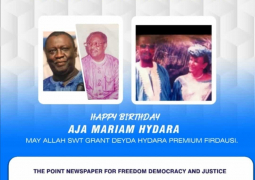In his ruling, he stated that Section 166 of the CPC enjoins the court to adjourn a case at the close of the prosecution to determine whether or not there is the need for the accused to make a defence. He quoted the said section that if at the close of the evidence in support of the charge, it appears to the court that a case is not made out against the accused person sufficiently to require him or her to make a defence, the court shall, as to that particular charge, acquit him or her.
In fact whether or not there has been an application made, it is the legal duty of a court of this type as per Section 166 of the CPC to do this, he stated. “Therefore, if after the perusal of the record it appears to this court that there is no evidence sufficiently requiring the accused persons to open their defence, it is the law that they must be acquitted by this court,” he asserted.
He said that it was his opinion that the prosecution must prove both the actus reus and the mens rea of the offences charged before the accused persons can be called upon to enter their defence. If in the event the actus reus is proved and the mens rea is lacking or vice verse then the accused cannot and shall not be called to open their defence, he posited.
He further posited that as laid down by Lord Parker C J in the Practice Direction, for an accused person to succeed on a no-case submission, he must establish any of the following: that the prosecution has failed to prove the ingredients or some of the ingredients of the offence charged; that the evidence adduced by the prosecutor has been thoroughly discredited by cross-examination; that the evidence adduced by the prosecution is so manifestly unreliable that no reasonable tribunal could convict on it.
At this juncture, he cited the evidence of the prosecution witnesses to support his ruling. On the charge of conspiracy, he referred to Section 368 of the Criminal Code. “The Court of Appeal held among other things that for conspiracy to suffice, two or more persons must agree to prosecute a common purpose, which should be an unlawful purpose. “It is an undisputed fact that any agreement or conspiracy between two people with the intention to steal is unlawful and which when proved as in this case, will warrant a conviction,” he told the court.
He further cited the evidence of the prosecution witnesses and adduced that hearsay is not admissible in criminal matters and evidence that is wrongfully admitted during trial can be disregarded by a court during judgment.
“My mind is clouded with doubts under the circumstances as to whether or not the offence was committed by the accused persons as stated in the testimonies of the prosecution witnesses. Therefore, the accused persons have no case to answer and they are hereby accordingly acquitted and discharged,” he concluded.





